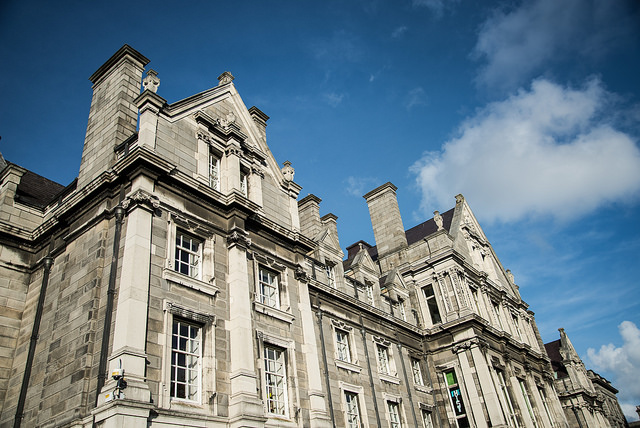Like many others, I am well versed in the chameleon-like adaptations that are required to exist as a woman in this world. From early adolescence, we become far too familiar with unwanted advances from men, be it in the form of inappropriate physical and verbal behaviour or simply feeling at the mercy of those older or more powerful. I think I speak for many women when I say that my reactions to these commonplace occurrences have become mere muscle memory.
Despite the perpetuity of these incidents within society, there is generally a safety to be felt within institutions thanks to protective measures that help to both prevent sexually inappropriate behaviours and protect and support us if they do occur. A school, college or workplace are often the few havens within which we women can feel able to put our guard down.
When I read the testimonies of multiples students’ experiences with bullying, harassment and assault by mostly male senior members of Trinity’s two largest and most renowned societies – the Dublin University Philosophical Society (the Phil) and the College Historical Society (the Hist) – I was struck with the saddening reality that we cannot always count on reputable institutions to keep us safe.
Students who spoke about their experiences recounted being belittled by nasty comments, having older male society members make persistent sexual advances without consent and being aware they were targeted because they were naive first years.
Reading some of the quotes from the victims made me squirm, such as one that described a student’s experience of being climbed upon while in her bed after being coerced by a fellow society member into letting him stay. Another student heard a fellow society member’s plans to intentionally get her drunk when they met up to prepare for an online event, saying he would “break her”.
Reading some of the quotes from the victims made me squirm
What was especially striking from the article was the known culture within the societies for first-year girls to be the main target of these behaviours – demonstrating a deliberate and disgusting abuse of power.
I was prompted to remember my own experience as a first-year student, feeling like a tiny speck in a daunting new world, willing to grasp at anything that would help me feel more involved. My naivety and vulnerability were the perfect combination for anyone who might have wanted to take advantage of me. In my case, although uncommon, I was also yet to turn 18. Many first years take the transition to college directly from secondary school and are barely past being children.
For reports of bullying and harassment to surface within the most prestigious college in the country and its most illustrious societies is shameful and disturbing. Those of us who haven’t experienced this firsthand simply made different choices as to what societies they got involved in. Being an aspiring debater should not make you any more susceptible to abuse.
These testimonies of bullying and harassment within the societies are made all the more appalling by the entrapment of the victims within a misogynistic power dynamic. They described seeing no way of addressing the issue. As a female fresher, the odds are stacked against you when reporting inappropriate behaviour to another member of the clique at the top of the hierarchy. The best they could expect would be a few words to be had with the perpetrator without punishment for their actions, the worst being further harassment and chastisement for daring to speak ill of long-standing members. It was for this precise reason that victims who spoke to The University Times chose to remain anonymous.
Being an aspiring debater should not make you any more susceptible to abuse
One victim described being helped out of an uncomfortable situation after she expressed her concerns to a male friend in the society, pointing out the sad reality that only by being close to another senior man had she any way of remedying the situation. The power structure within the Phil and the Hist clearly favours that of its male members, to the detriment of other member’s wellbeing.
What is equally unacceptable is the culture present in these societies that works to protect perpetrators. Victims should not be terrified to speak out for fear of further ill treatment, and reports of inappropriate behaviour should result in necessary consequences. Society committees should not be comprised of friend groups who will have each other’s backs in the event of such serious allegations.
Male-centric power structures that harbour abuse sadly permeate many aspects of our society, but for them to be reproduced year after year within the top university in Ireland reflects a bleak picture of the progress we are making. It is an incredibly harmful and unfortunately prevalent tendency in our society to value the reputation of men over the wellbeing of women, and we must not let it permeate the very spaces that are meant to be safe havens for all students.
I am exhausted from worrying about my female peers being unsafe, from being subject to experiences that will traumatise them and isolate them from social groups.
The victims of bullying and harassment within the Phil and the Hist deserve not merely to be heard, they deserve to feel safe going forward. Incoming students deserve protection from this power structure replicating so that abuse can thrive. We need to punish perpetrators, not protect them.







